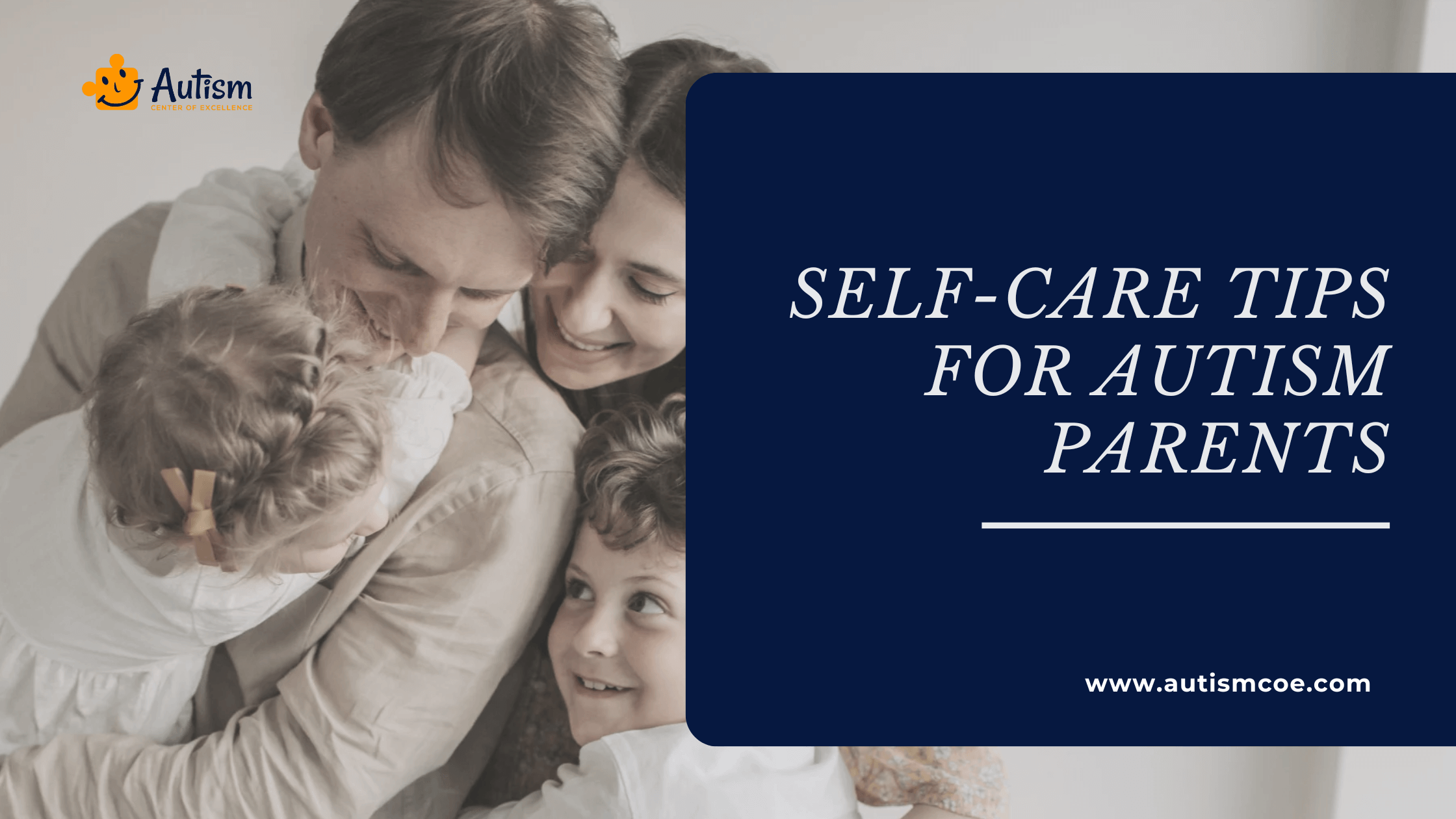Parenting is a challenging task and when you have a child who has autism, the challenges are a bit different. The path is sometimes daunting, from therapies and treatments to the management of behavioral problems. In such chaos, parents tend to forget about themselves. But self-care is not an indulgence; self-maintenance is not selfish, particularly for parents of children who have autism. Being healthy physically, emotionally, and mentally helps you to manage the stress of parenting a child with autism. In this blog we intend to provide practical self-care tips specifically for the amazing parents managing autism parenting, to help you navigate this journey with more grace and strength.
Why Self-Care is Essential for Autism Parents?
Self-care is very important for all parents, however, especially for parents of children with Autism. The role involves unique needs, and emotional and physical challenges, and is often 24/7 in nature, and if not managed properly, then there is the likelihood of developing high levels of stress and burnout. Here are several reasons why self-care is not just beneficial but essential for parents of children with autism:
Preventing Burnout
The care of a child having Autism is very challenging and rewarding at the same time. Parents can fuel burnout without regular breaks and self-care practices, which is the stage of emotional, physical, and mental fatigue that comes as a result of continuous stress. Burnout does not only influence the health of the parent but also the quality of care and support their child gets.
Enhancing Emotional Resilience
Parental resilience can be greatly improved by self-care strategies such as mindfulness, exercising, therapy, or indulgence in a hobby among others. Such improved resilience against autism’s challenges is most important in overcoming the many ups and downs that are part of autism parenting, from dealing with challenges in behavior to advocating the child’s needs in different places. Emotionally stronger health helps parents to approach stressful situations with more patience, understanding, and focus.
Improving Physical Health
The parent’s health and general well-being are directly affected by the physical dimension of self-care, like having enough sleep, maintaining a balanced diet, and regular exercising. Because of the physical nature of caring for a child with autism, it is important to ensure optimal physical health to perform all that needs to be done.
Strengthening Relationships
Successful self-care can support stability and development of family relations. Stress levels are lowered and emotional well-being is improved, which leads to a more positive interaction between the parent and their partner, the child with autism, and any other children. Healthy relationships are the cornerstone of a caring and loving family environment.
Serving as a Role Model
Parents are the first heroes of their children. Setting self-care as the priority and showing healthy coping strategies, the parents of children with autism can educate their children on the importance of self-love, self-respect, and the significance of taking care of one’s mental and physical health. It is more critical for children with autism as they may require literal examples to learn these essential life skills.
Maintaining Personal Identity
Parents of children with Autism can easily forget their passions, interests, and hobbies. Self-care practices help parents to reattach their interests, passions, and dreams. Maintaining Personal Identity is important for mental health and overall happiness.
Parents of children with Autism can easily forget their passions, interests, and hobbies. Self-care practices help parents to reattach their interests, passions, and dreams. Maintaining Personal Identity is important for mental health and overall happiness.
Join Our Weekly Newsletters!
Subscribe now to stay updated with our latest email updates.

Self-Care Tips for Autism Parents
Parenting a child with Autism Spectrum Disorder is a stressful situation however you need to take care of yourself too for keeping yourself healthy. Here are some self-care tips specifically tailored for autism parents.
1️⃣ Prioritize Your Physical Health:
Exercise Regularly: Search for some activities you like—walking, yoga, cycling—and incorporate it into your regular schedule. Exercise will decrease stress, enhance mood, and lift energy levels.
Eat Well: Proper meals instate health, energy, and mood. Meal planning helps to ensure a proper diet when there is lack of time.
Get Adequate Sleep: Quality sleep is crucial. Try to establish a regular sleep schedule and create a relaxing bedtime routine.
2️⃣ Manage Stress:
Mindfulness and Meditation: Practices like mindfulness and meditation can help calm the mind, reduce stress, and improve emotional regulation.
Take Breaks:Brief pauses at regular intervals during the day can offer valuable relaxation. A little time of silence can even be refreshing.
Seek Professional Help: Stress management specialists therapists or counselors specializing in children with autistic disorders can provide helpful approaches and support.
3️⃣ Foster Emotional Well-being:
Connect with Others:Developing friendships with other autism parents can bring solace, empathy, and practical help. Try to become a part of support groups, either in person or online.
Allow Yourself to Feel: It’s okay to have a wide range of emotions. Acknowledge and express your feelings in a healthy way, such as through journaling or talking with a trusted friend or therapist.
4️⃣ Set Aside Time for Yourself:
Pursue Interests and Hobbies: Engaging in activities you love can be incredibly fulfilling and a wonderful escape from daily stress.
Practice Self-compassion:Do good to yourself. Accept that you are trying your best and that it is alright to have periods of frustration or uncertainty.
5️⃣ Create a Supportive Environment:
Seek Support from Family and Friends: Do not be afraid of asking for assistance if it is required. Be it caregiving help or mere talking partners, turning to someone can make you feel better.
Use Respite Services: Consider using respite care services which give you an opportunity to rest and your child to socialize with others.
6️⃣ Establish Boundaries:
Learn to Say No:Boundaries should be determined and limitations should be acknowledged. Refusing to take on extra roles avoid over commitment and burnout.
Protect Your Time: Ensure you have time blocked off for self-care and family activities that don’t revolve around autism.
7️⃣ Plan and Organize:
Stay Organized: Structure is useful in coping with unpredictability that autism brings into everyday life. It can also help you to make sure you allocate time for self-care.
Prepare for the Unexpected: Having contingency plans in place can reduce anxiety when things don’t go as planned.
8️⃣ Focus on the Positive:
Celebrate Small Wins: Acknowledge and celebrate the progress and achievements, no matter how small, of both your child and yourself.
Maintain Perspective: Do not forget to remember the whole scenario and that pleasure and love of parenting that comes with it.
Autism parenting is a marathon, not a sprint. Application of such self-care strategies will orient your health position to enduring and grow your ability to attend your child throughout a period of time. Keep in mind, looking after yourself is not only good for you, it’s vital for your whole family.
Frequently Asked Questions & Answer
What is the Role of Parents in Autism?
Parents are crucial for offering support to their children with autism in various areas of their lives. They become the advocates, teachers, nurturers, and emotional supports for their children. Parents usually organize therapies, medical appointments, and educational services for their children and provide care, support, love, and empathy to help their children succeed.
How Stressful is it for Parents With an Autistic Child?
The unique challenges parents of children with autism face make their lives stressful. Parents often find themselves under a lot of stress and pressure, from finding the right therapies and treatments to dealing with behavioral issues and advocating for their child’s needs. The anxiety regarding the child’s future and the overwhelming responsibility of caregiving affect parents’ mental and emotional health.
What is the Hardest Part of Raising a Child With Autism?
What is the most difficult thing in raising a child with autism depends on a family in particular, but the main issues are problems in communication, isolation, and control of their behaviors. Parents might also find it difficult to handle feelings of guilt, frustration, and exhaustion as they live through the tangles of autism parenting. Furthermore, society’s ignorance and lack of assistance can make the process of bringing up a child with autism more challenging.
How Do Autistic Parents Feel?
Autistic parents go through a similar range of emotions as nonautistic parents, such as love, joy, and pride in their children. However, they can also experience autism-related challenges and problems, including sensory sensitivity, social problems, and the world of the neurotypical. Autistic parents experience both empowerment and challenges associated with their unique perspectives and strengths. However, they also have to contend with stigma, discrimination, and access barriers. All in all, like all parents, autistic parents need to get empathy, understanding, and support in their parenting career.
Conclusion
Caring for a child with autism is a profound responsibility—one that requires immense strength, patience, and love. Remember, prioritizing your health and wellness is integral to being the best caregiver you can be. Your well-being directly influences your ability to provide care, making self-care an essential component of your caregiving role. Make self-care a non-negotiable part of your routine. By taking care of yourself, you’re better equipped to handle the challenges of autism parenting and be the best parent you can be. You deserve it. AutismCOE offers ABA Therapy, Autism Early Intervention Program, Autism School Readiness Program, Speech Therapy, and Occupational Therapy services for children aged 2 – 14 years in-home as well as in center-based environments.
Please Note: The content of this blog is for informational purposes only and should not be considered a substitute for professional medical advice, diagnosis, or treatment. Consult a qualified health care professional for personalized guidance tailored to your specific situation.

Bhavika Bhasin
Bhavika Bhasin is the Research and Marketing officer at AutismCOE. She works with children and adults with ASD. Her clinical research includes evaluating various available autism screening and diagnosis methods and their efficacy. She is currently developing a novel screening exam that is indicated to be more accurate than the existing available exams. She is also writes articles papers for various publications.


